Understanding Oral Cancer and the Importance of Self-Checks
Oral cancer is a serious health condition affecting thousands of Americans every year. Early detection significantly improves treatment outcomes, making regular self-examination a crucial part of oral health care. While professional screenings are essential, knowing how to self check for oral cancer can empower you to identify warning signs early and seek timely medical advice.
Oral cancer can develop in any part of the mouth, including the lips, tongue, cheeks, floor of the mouth, and throat. The disease may start as small, unnoticed changes but can progress rapidly if left untreated.
Step-by-Step Guide: How to Self Check for Oral Cancer
1. Prepare Your Tools and Environment
Before starting your self-examination, ensure good lighting—natural daylight is best. Use a mirror and a clean finger or cotton swab to gently feel the surfaces inside your mouth. Take your time and stay calm to carefully observe every area.
2. Examine Your Lips and Mouth Exterior
Look closely at your lips for any unusual lumps, sores, or color changes such as white or red patches. Gently pull your lips outward and check for cracks, ulcers, or swelling that doesn’t heal.
3. Inspect the Inside of Your Mouth
Open your mouth wide and examine the cheeks, gums, and the roof of your mouth. Use your finger to feel for any lumps or thickened areas beneath the mucous membranes. Pay special attention to any persistent soreness or areas that bleed easily.
4. Check Your Tongue Thoroughly
Stick out your tongue and look for color changes, lumps, or ulcers. Examine the top, sides, and underside of the tongue. Use a gauze or clean cloth to gently pull your tongue forward to inspect the underside and the floor of the mouth.
5. Examine Your Throat and Neck
Using a flashlight, look inside your throat for redness, swelling, or white patches. Gently feel your neck and under your jawline for any unusual lumps or swelling that persists.
Common Warning Signs of Oral Cancer to Watch For
Recognizing symptoms early is critical. If you notice any of the following, it’s important to consult a healthcare professional promptly:
1. Persistent Mouth Sores or Ulcers
Sores that do not heal within two weeks can be a warning sign. They may be painless or cause discomfort.
2. White or Red Patches
Unexplained white (leukoplakia) or red (erythroplakia) patches inside the mouth warrant attention.
3. Lumps or Thickening of Tissues
Any unusual growth or hardening in the mouth or neck area should be evaluated.
4. Difficulty Swallowing or Persistent Hoarseness
These symptoms may indicate deeper involvement of oral tissues or throat.
5. Unexplained Numbness or Pain
Numbness in the mouth or face or persistent pain without clear cause requires investigation.
Why Early Detection Through Self-Check Matters
Early detection of oral cancer dramatically increases survival rates. Many cases diagnosed at an early stage can be treated successfully with less invasive procedures. Regular self-checks combined with professional dental exams create a powerful defense against advanced disease.
One patient, Emily, credits her routine self-examinations for spotting an early lesion. Prompt diagnosis led to early treatment, allowing her to recover fully and avoid extensive surgery.
When and How Often Should You Perform Oral Cancer Self-Checks?
Experts recommend performing a self-check at least once a month. Individuals with higher risk factors—such as tobacco use, heavy alcohol consumption, or a history of oral cancer—should be especially vigilant and may benefit from more frequent checks.
Additional Tips for Maintaining Oral Health and Reducing Cancer Risk
1. Avoid Tobacco and Limit Alcohol
Both tobacco and excessive alcohol use significantly increase oral cancer risk. Quitting smoking and moderating alcohol intake contribute to prevention.
2. Maintain Good Oral Hygiene
Regular brushing, flossing, and dental check-ups help keep your mouth healthy and spot potential problems early.
3. Protect Yourself from HPV
Human papillomavirus (HPV) infection is linked to certain oral cancers. Practicing safe behaviors and vaccination may reduce risk.
Professional Screening and When to Seek Help
While self-checks are invaluable, professional dental exams are essential for thorough evaluation. Dentists use specialized tools and may perform biopsies to diagnose suspicious lesions accurately.
If you observe any abnormalities during your self-exam, don’t delay consulting a healthcare provider. Early professional consultation combined with your proactive self-care is the best approach.
For those in the United States looking for trusted oral cancer screening and dental care services, Dentistry Toothtruth offers comprehensive evaluations, expert advice, and personalized treatment plans designed to protect your oral health.

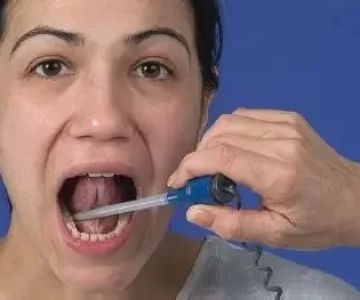
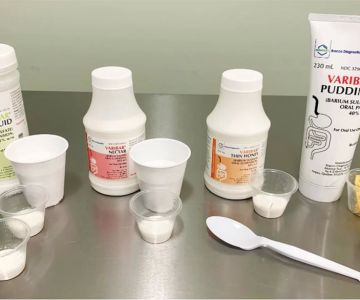
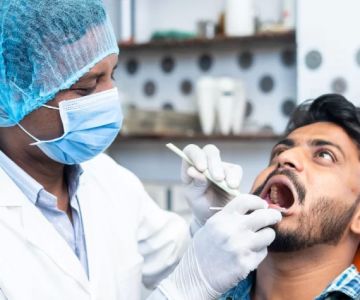
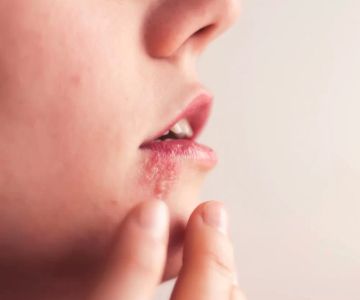
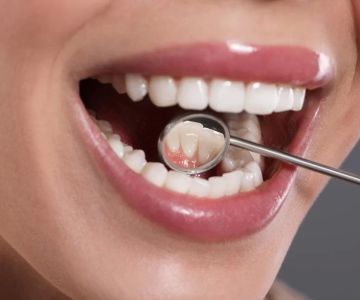
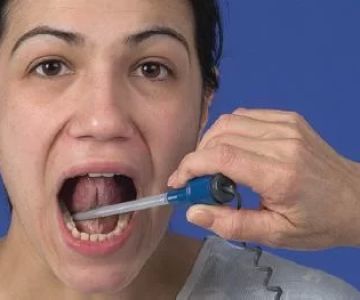
 Sundance Endodontics5.0 (254 review)
Sundance Endodontics5.0 (254 review) Kaiser & Rosen Dental Associates4.0 (107 review)
Kaiser & Rosen Dental Associates4.0 (107 review) Bonanza East Dental4.0 (24 review)
Bonanza East Dental4.0 (24 review) Barclay Family Dental4.0 (152 review)
Barclay Family Dental4.0 (152 review) Children's Dentistry5.0 (1 review)
Children's Dentistry5.0 (1 review) Tend East Nashville4.0 (319 review)
Tend East Nashville4.0 (319 review) The Importance of Oral Health Education During Pregnancy for a Healthy Pregnancy
The Importance of Oral Health Education During Pregnancy for a Healthy Pregnancy Best Tips for Brushing Your Teeth Properly for Healthy Gums: Essential Techniques for Oral Health
Best Tips for Brushing Your Teeth Properly for Healthy Gums: Essential Techniques for Oral Health Why Skipping Dental Checkups Can Lead to Bigger Oral Health Problems
Why Skipping Dental Checkups Can Lead to Bigger Oral Health Problems Advantages of Porcelain Dental Restorations
Advantages of Porcelain Dental Restorations How Can Diabetes Cause Tooth and Gum Problems? Preventing and Managing Oral Health Issues
How Can Diabetes Cause Tooth and Gum Problems? Preventing and Managing Oral Health Issues Healthy Habits for Promoting Good Oral Health and Hygiene: Tips for a Healthy Smile
Healthy Habits for Promoting Good Oral Health and Hygiene: Tips for a Healthy Smile